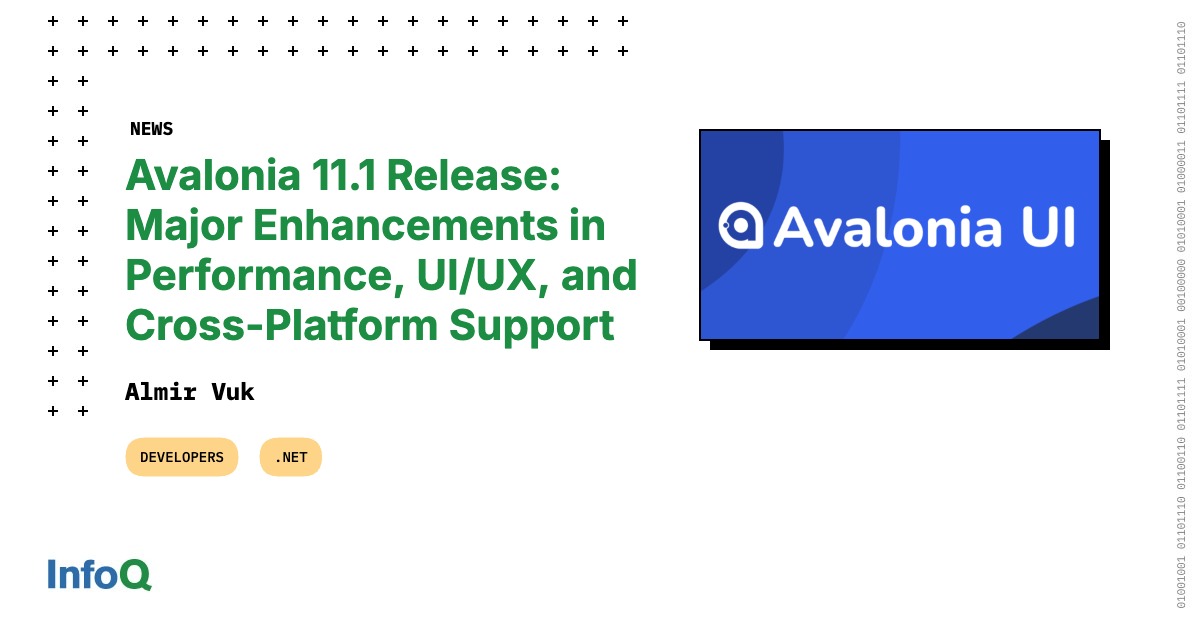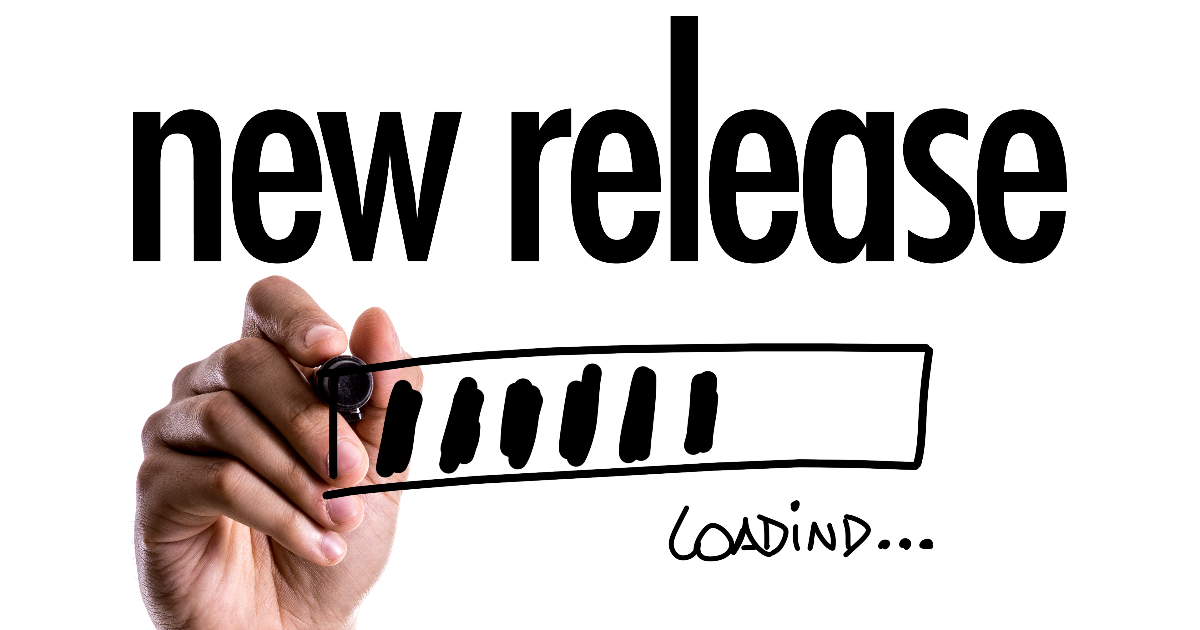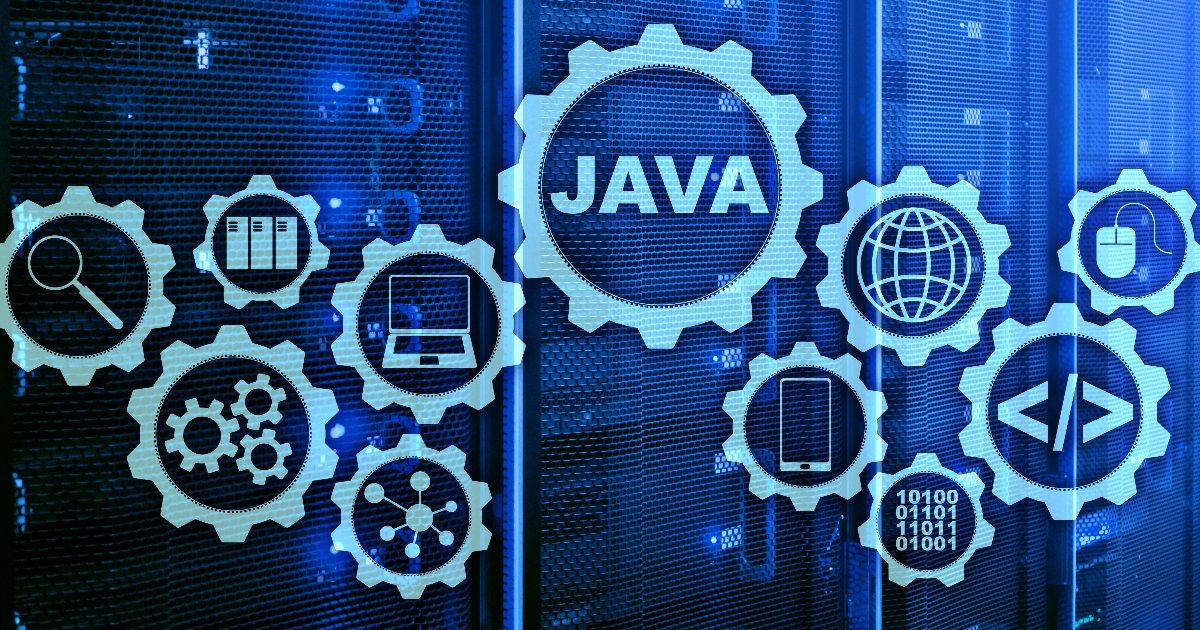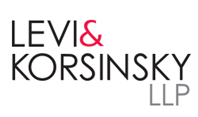Month: August 2024
MongoDB stock touches 52-week low at $214.49 amid market shifts – Investing.com Canada

MMS • RSS

In a challenging market environment, MongoDB , Inc. (NASDAQ:) stock has recorded a new 52-week low, dipping to $214.49. The database platform provider, known for its popular non-relational database, has faced a significant downturn over the past year, with its stock price reflecting a stark 1-year change of -42.05%. This decline underscores the broader tech sector’s volatility as investors recalibrate their expectations in the face of rising interest rates and economic uncertainty. MongoDB’s performance is particularly notable as it deviates from its growth trajectory, prompting close scrutiny from investors and analysts alike.
In other recent news, MongoDB, Inc. announced the results of its Annual Meeting of Stockholders, confirming the election of three Class I directors and the approval of executive compensation in a non-binding advisory vote. The stockholders also ratified the appointment of PricewaterhouseCoopers LLP as MongoDB’s independent registered public accounting firm for the fiscal year ending January 31, 2025. These developments demonstrate shareholder confidence in MongoDB’s governance and financial oversight.
In the realm of analyst ratings, KeyBanc maintained its Overweight rating on MongoDB with a steady price target of $278.00, highlighting MongoDB’s leading position in the NoSQL database market. Scotiabank (TSX:) revised its price target for MongoDB to $250, maintaining a “Sector Perform” rating, and advised investors to adopt a “wait and see” approach due to a slower operational start and more moderate activity from end-users.
Citi also adjusted its outlook on MongoDB shares, reducing the price target to $350 while maintaining a Buy rating, citing weaker consumption trends and the smallest revenue beat in the company’s history. Despite these setbacks, Citi remains optimistic about MongoDB’s potential for growth in the second half of the year. Guggenheim, on the other hand, upgraded MongoDB stock from Sell to Neutral, attributing the downgrade in guidance and the company’s performance to temporary go-to-market headwinds rather than broader macroeconomic issues. These are the recent developments in MongoDB’s financial landscape.
InvestingPro Insights
In light of MongoDB’s recent dip to a new 52-week low, a closer look at the company’s financial health and market performance is warranted. According to InvestingPro data, MongoDB holds a market capitalization of $15.8 billion and has experienced a revenue growth of 29.15% over the last twelve months as of Q1 2023. Despite not being profitable over the last twelve months, analysts are predicting that the company will turn a profit this year. This optimism is reflected in the company’s price/book multiple of 13.45, which, while high, suggests that investors may be expecting future growth.
Two InvestingPro Tips that stand out in this context are MongoDB’s strong cash position, with liquid assets exceeding short-term obligations, and the expectation of net income growth this year. These factors could be pivotal for investors considering whether MongoDB’s current low stock price presents a buying opportunity. It’s also worth noting that MongoDB does not pay dividends, which may influence the investment strategy of income-focused shareholders. For more in-depth analysis, there are an additional 20 InvestingPro Tips available for MongoDB on the InvestingPro platform.
While the tech sector remains volatile, MongoDB’s financial resilience and the anticipation of profitability may offer some solace to investors. The company’s next earnings date is set for August 30, 2024, which will be a critical moment for assessing MongoDB’s progress towards its growth objectives.
This article was generated with the support of AI and reviewed by an editor. For more information see our T&C.
Avalonia 11.1 Release: Major Enhancements in Performance, UI/UX, and Cross-Platform Support

MMS • Almir Vuk

At the end of July, Avalonia 11.1 has been released. It is labeled as a point release, but as stated in the official release post, the volume of improvements suggests a major upgrade for developers. The project changes are related to Performance Optimizations, UI and UX Improvements, Developer Productivity, Graphics and Animation Enhancements, and more.
For readers who are unaware, Avalonia UI is an open-source and cross-platform UI framework for .NET developers, designed to facilitate the development of desktop applications that can run on Windows, macOS, Linux, iOS, Android, and WebAssembly. Correspondingly, last year, InfoQ also interviewed Mike James, the company’s current CEO, which readers can read and get more insights into the Avalonia UI platform.
The update enhances cross-platform support, notably adding compatibility with Samsung Tizen and Apple TV. This expansion allows developers to target smart TVs, and the Avalonia team states the following:
These new capabilities are particularly exciting for developers aiming to extend their applications into the living room or create unique TV-based experiences.
Browser support has also seen a few improvements, with a new software renderer that boosts performance and compatibility. The framework now supports multiple AvaloniaView instances, making it suitable for complex web applications. On mobile, updates to the Android and iOS backends include fixes for input handling, keyboard interactions, and general stability, improving user and developer experiences.
Performance has been a focal point of Avalonia 11.1. The introduction of a new Vulkan rendering backend offers notable performance benefits, as reported providing more control over GPU resources and improving rendering efficiency.
Other optimizations include enhancements to the rendering pipeline, resulting in smoother animations and faster UI updates. Resource management has also been improved, with better caching and lazy loading, reducing memory usage and speeding up application startup times.
User interface and user experience (UI/UX) enhancements include the addition of a HyperlinkButton control, making it easier to implement clickable links. The tooltip system has been updated, offering features like tooltip chaining and the BetweenShowDelay property for more sophisticated tooltip behavior. The ScrollViewer component has been improved for smoother scrolling, adapting to various input methods.
Developer productivity features have been bolstered, with enhancements to DevTools, including a focus follower and the ability to pin properties. Also, XAML improvements now offer better handling of generics, more efficient compiled bindings, and improved diagnostics.
The binding system has been refined, with better support for MultiBinding and ICommand bindings in style setters. The new FuncValueConverter provides more flexible data conversion options.
Graphics and animation capabilities have expanded, with support for new pixel formats like Rgb32 and Bgr32, enhancing image handling efficiency. TileBrush and DrawingBrush have been improved for more complex graphical effects.
Furthermore, the animation system has been refined, ensuring smoother animations and better performance.
A Reddit thread discussing the Avalonia project has yielded notable insights, particularly with the participation of Mike James, the current CEO of the Avalonia project. James mentioned that WebOS support might be a future possibility, noting that one of the community members was working on adding WebOS support, but not 100% sure what the current status is.
The rest of the community’s feedback was generally positive, with questions focusing on Avalonia’s stability compared to .NET MAUI and its overall performance.
Additional project changes include updates in accessibility, internationalization, mobile-specific enhancements, new windowing features, file system integration, and build and deployment improvements.
Lastly, the full release notes are available on the project’s official website, and interested readers are encouraged to explore.

MMS • RSS
NEW YORK, Aug. 5, 2024 /PRNewswire/ — The Gross Law Firm issues the following notice to shareholders of MongoDB, Inc. (NASDAQ: MDB).

Shareholders who purchased shares of MDB during the class period listed are encouraged to contact the firm regarding possible lead plaintiff appointment. Appointment as lead plaintiff is not required to partake in any recovery.
CONTACT US HERE:
https://securitiesclasslaw.com/securities/mongodb-inc-loss-submission-form/?id=93538&from=4
CLASS PERIOD: August 31, 2023 to May 30, 2024
ALLEGATIONS: According to the complaint, on March 7, 2024, MongoDB reported strong Q4 2024 results and then announced lower than expected full-year guidance for 2025. MongoDB attributed it to the Company’s change in its “sales incentive structure” which led to a decrease in revenue related to “unused commitments and multi-year licensing deals.” Following this news, MongoDB’s stock price fell by $28.59 per share to close at $383.42 per share. Later, on May 30, 2024, MongoDB further lowered its guidance for the full year 2025 attributing it to “macro impacting consumption growth.” Analysts commenting on the reduced guidance questioned if changes made to the Company’s marketing strategy “led to change in customer behavior and usage patterns.” Following this news, MongoDB’s stock price fell by $73.94 per share to close at $236.06 per share.
DEADLINE: September 9, 2024 Shareholders should not delay in registering for this class action. Register your information here: https://securitiesclasslaw.com/securities/mongodb-inc-loss-submission-form/?id=93538&from=4
NEXT STEPS FOR SHAREHOLDERS: Once you register as a shareholder who purchased shares of MDB during the timeframe listed above, you will be enrolled in a portfolio monitoring software to provide you with status updates throughout the lifecycle of the case. The deadline to seek to be a lead plaintiff is September 9, 2024. There is no cost or obligation to you to participate in this case.
WHY GROSS LAW FIRM? The Gross Law Firm is a nationally recognized class action law firm, and our mission is to protect the rights of all investors who have suffered as a result of deceit, fraud, and illegal business practices. The Gross Law Firm is committed to ensuring that companies adhere to responsible business practices and engage in good corporate citizenship. The firm seeks recovery on behalf of investors who incurred losses when false and/or misleading statements or the omission of material information by a company lead to artificial inflation of the company’s stock. Attorney advertising. Prior results do not guarantee similar outcomes.
CONTACT:
The Gross Law Firm
15 West 38th Street, 12th floor
New York, NY, 10018
Email: dg@securitiesclasslaw.com
Phone: (646) 453-8903
![]() View original content to download multimedia:https://www.prnewswire.com/news-releases/shareholders-that-lost-money-on-mongodb-incmdb-urged-to-join-class-action–contact-the-gross-law-firm-to-learn-more-302213748.html
View original content to download multimedia:https://www.prnewswire.com/news-releases/shareholders-that-lost-money-on-mongodb-incmdb-urged-to-join-class-action–contact-the-gross-law-firm-to-learn-more-302213748.html
SOURCE The Gross Law Firm
Forrester Recommend Cloud Maturity Fixes in HashiCorp’s 2024 State of Cloud Strategy Survey

MMS • Matt Saunders

HashiCorp’s 2024 State of Cloud Strategy Survey, conducted by Forrester Consulting, provides critical insights into cloud adoption and maturity among global enterprises. The study surveyed nearly 1,200 organisations, revealing a significant disparity in cloud maturity levels, with only 8% of respondents qualifying as highly cloud mature.
The key findings from Forrester show that high-maturity organisations focus on strategy and scaling. They establish platform teams and adopt internal developer platforms (IDPs) while standardising security and compliance practices across their entire digital estate. They are significantly more likely to align their cloud infrastructure strategy with overall business goals, strengthen security, reduce risk, and simplify compliance.
In contrast, low-maturity firms prioritise tactical considerations. They appear more focused on budgets and bottom lines. Forrester notes this as concerning, indicating that these organisations are paying more attention to short-term cost-cutting than long-term strategy.
The need for essential cloud skills is particularly problematic for low-maturity firms. This shortage creates challenges in many areas, especially in cloud security.
Despite being in its early stages, many respondents believe Generative AI can help address critical cloud issues such as security, skills, availability, and scalability. Organisations are beginning to investigate how to use AI to bolster their cloud infrastructure and security efforts.
Forrester goes on to make several recommendations.
Invest in upskilling: Organisations should prioritise investment in modernising practices like the centralised use of infrastructure as code. Addressing skills gaps through training in cloud, cybersecurity, and GenAI applications is crucial. This approach can attract skilled developers enticed by the promise of working in a modern development environment.
Enhance multi-cloud and hybrid cloud strategy: Forrester advises embedding flexibility into cloud solutions to address specific organisational needs while promoting scalability, improving security, and optimising costs.
Implement cloud cost optimisation practices: to tackle the challenge of avoidable cloud spend (cloud waste), Forrester recommends implementing cloud usage audits, auto-scaling, and leveraging cost management tools. Spreading cost awareness and responsibility across teams can also help reduce cloud waste.
Strengthen security measures: As security remains a top priority across all levels of cloud maturity, organisations should solidify their security posture with advanced threat-detection systems, data encryption, regular security assessments, and ensuring staff is up to date on security best practices.
Carefully roll out GenAI for automation and innovation: While encouraging GenAI technologies to alleviate staffing issues and enhance security, Forrester advises caution. Organisations should make it a strategic objective to train or customise AI to their specific environment to help address skill gaps. However, the study advises against going all-in on AI too soon, noting that current AI solutions may only be ready for some use cases.
While the Forrester report focuses on cloud strategy, the most-recent DORA Accelerate State of DevOps Report (2023) provides additional context in some areas:
On AI adoption, DORA says, “More than half of respondents are already using AI for some technical tasks today, showing moderate improvements to employee well-being.” This suggests a higher current adoption rate than implied by the Forrester report, which describes GenAI as still in the early stages.
DORA also emphasises the importance of documentation, stating that “High-quality documentation leads to 25% higher team performance,” and also highlights cultural and work distribution aspects that aren’t addressed in the Forrester report, noting that teams with generative cultures perform 30% better and that job security can reduce burnout.
Finally, DORA emphasises the importance of focusing on the user, stating that this gives 40% better performance and 20% higher job satisfaction.
IBM’s article on Cloud Maturity Models (CMMs) provides additional context and frameworks for evaluating cloud adoption readiness. The article emphasises the importance of CMMs in addressing concerns around security, governance, and lack of resources and expertise. It suggests a three-phase assessment, cycling through Cloud Adoption Maturity, Cloud Security Maturity and Cloud-Native Maturity.
The IBM article emphasises that organisations may only need to reach the highest level of maturity in some models. However, it notes that some level of cloud maturity is likely necessary to remain competitive, given that 70% of workloads are expected to be on the cloud by 2024, according to Gartner.
The Cloud Native Computing Foundation (CNCF) also has a maturity model, outlining five levels of cloud-native adoption: Build, Operate, Scale, Improve and Optimise.
Each level represents increased cloud-native integration, from initial proof of concept to a fully optimised, flexible platform. The model emphasises the progression of organisational support, skill development, and the shift from centralisation to decentralisation as maturity increases.
The reports all highlight that more mature cloud postures drive more significant cloud ROI, and improve digital transformations. As organisations progress in their cloud journey, they can use these maturity models to assess their current state, identify areas for improvement, and develop strategies to maximise the benefits of cloud adoption while addressing key challenges such as security, cost optimisation, and skills development.
Contact The Rosen Law Firm Before September 9, 2024 to Discuss Your Rights – Le Lézard

MMS • RSS
Subject: ATY
NEW YORK, Aug. 4, 2024 /PRNewswire/ —
Why: Rosen Law Firm, a global investor rights law firm, reminds purchasers of securities of MongoDB, Inc. (NASDAQ: MDB) between August 31, 2023 and May 30, 2024, both dates inclusive (the “Class Period”), of the important September 9, 2024 lead plaintiff deadline.
So What: If you purchased MongoDB securities during the Class Period you may be entitled to compensation without payment of any out of pocket fees or costs through a contingency fee arrangement.
What to do Next: To join the MongoDB class action, go to https://rosenlegal.com/submit-form/?case_id=27182 or call Phillip Kim, Esq. toll-free at 866-767-3653 or email [email protected] for information on the class action. A class action lawsuit has already been filed. If you wish to serve as lead plaintiff, you must move the Court no later than September 9, 2024. A lead plaintiff is a representative party acting on behalf of other class members in directing the litigation.
Details of the case: According to the lawsuit, throughout the Class Period, defendants created the false impression that they possessed reliable information pertaining to the Company’s projected revenue outlook and anticipated growth while also minimizing risk from seasonality and macroeconomic fluctuations. In truth, MongoDB’s sales force restructure, which prioritized reducing friction in the enrollment process, had resulted in complete loss of upfront commitments; a significant reduction in the information gathered by their sales force as to the trajectory for the new MongoDB Atlas enrollments; and reduced pressure on new enrollments to grow. Defendants misled investors by providing the public with materially flawed statements of confidence and growth projections which did not account for these variables. When the true details entered the market, the lawsuit claims that investors suffered damages.
To join the MongoDB class action, go to https://rosenlegal.com/submit-form/?case_id=27182 or call Phillip Kim, Esq. toll-free at 866-767-3653 or email [email protected] for information on the class action.
No Class Has Been Certified. Until a class is certified, you are not represented by counsel unless you retain one. You may select counsel of your choice. You may also remain an absent class member and do nothing at this point. An investor’s ability to share in any potential future recovery is not dependent upon serving as lead plaintiff.
Follow us for updates on LinkedIn: https://www.linkedin.com/company/the-rosen-law-firm, on Twitter: https://twitter.com/rosen_firm or on Facebook: https://www.facebook.com/rosenlawfirm/.
Attorney Advertising. Prior results do not guarantee a similar outcome.
Contact Information:
Laurence Rosen, Esq.
Phillip Kim, Esq.
The Rosen Law Firm, P.A.
275 Madison Avenue, 40th Floor
New York, NY 10016
Tel: (212) 686-1060
Toll Free: (866) 767-3653
Fax: (212) 202-3827
[email protected]
www.rosenlegal.com
SOURCE THE ROSEN LAW FIRM, P. A.
News published on 4 august 2024 at 09:30 and distributed by: 

MMS • Karsten Silz

VMware released Spring Boot 3.3 on May 23, 2024, with significant performance, security, and observability improvements. These include Class Data Sharing (CDS) for faster startup and reduced memory usage, virtual thread support for websockets, enhanced security with JWT authentication auto-configuration, and Software Bill of Materials (SBOM) support for improved supply chain security. The upgrade also features expanded service connection options for Apache ActiveMQ and LDAP, Docker Compose support for Bitnami Container Images, and upgrades to Spring projects and third-party libraries.
The release notes include a complete list of changes and deprecations. The revamped documentation is now searchable. The minor Spring Boot 3.3.1 and 3.3.2 releases followed mid-June and mid-July, respectively.
CDS, a JVM feature that significantly reduces startup time and memory consumption, was integrated in Spring Framework 6.1 in November 2023. Spring Boot follows suit and can now easily create a CDS-friendly layout from the fat JAR with the "tools" jarmode:
java -Djarmode=tools -jar your-application.jar extract
This creates one /.jar and deposits all libraries as individual JARs into the your-application/lib folder. The application then runs with java -jar your-application/your-application.jar. The following command shows all layers:
java -Djarmode=tools -jar your-application.jar list-layers
The command java -Djarmode=tools -jar your-application.jar help offers more details.
Virtual thread support for websockets further enhances performance. However, virtual threads may not be faster than thread pools in some situations, as a recent case study showed.
Spring Boot automatically configures an instance of the Spring Security JwtAuthenticationConverter or ReactiveJwtAuthenticationConverter classes if one of these properties is set to their respective values: spring.security.oauth2.resourceserver.jwt.authority-prefix, spring.security.oauth2.resourceserver.jwt.principal-claim-name, or spring.security.oauth2.resourceserver.jwt.authorities-claim-name.
Spring Boot removed dependency management for Dropwizard Metrics on which it never directly depended upon. Spring Boot updated to the 1.x version of the Prometheus Client, up from the 0.x of previous releases, and to Micrometer 1.13.
Spring Boot now exposes SBOM with a new actuator endpoint at META-INF/sbom/bom.json or META-INF/sbom/application.cdx.json. The spring-boot-parent-starter POM has additional options for easier SBOM plugin configuration.
The new @BatchTransactionManager annotation makes custom transaction manager configuration in Spring Batch easier. Tomcat, Netty, and Undertow support Server Name Indication (SNI) for SSL. Running mvn spring-boot:run on Windows now also works with many dependencies. And resources like SSL certificates can now be loaded directly from configuration files as Base64-encoded values:
spring:
ssl:
bundle:
pem:
mybundle:
keystore:
certificate: "base64:LS0tLS1CRUdJTi..."
private-key: "base64:QmFnIEF0dHJpYn..."
Spring Boot 3.3 offers native service connection support for Apache ActiveMQ Classic and Artemis components and for LDAP. Docker Compose support now also includes Bitnami Container Images alongside official images for various technologies, including Cassandra, Elasticsearch, MariaDB, MySQL, MongoDB, Neo4j, PostgreSQL, RabbitMQ, and Redis.
This release upgrades to Flyway 10.10 for automatic database structure migrations. Flyway 10 is more modular than previous versions and moved support for several databases into database-specific modules. Spring Boot now uses Infinispan 15, which has raised its Jakarta EE baseline. That’s why standard modules, such as infinispan-core, replaced several of the *-jakarta modules, such as infinispan-core-jakarta.
Other noteworthy additions include new properties for Spring Data JDBC dialect configuration (spring.data.jdbc.dialect), GraphQL websocket keep-alive configuration (spring.graphql.websocket.keep-alive), control over maximum sessions in WebFlux applications (server.reactive.session.max-sessions), and the maximum queue size of the Tomcat web server connector (server.tomcat.threads.max-queue-capacity).
Notable Spring dependency updates include Spring Security 6.3.0, Spring Session 3.3.0, Spring Data 2024.0.0, Spring GraphQL 1.3.0, Spring Integration 6.3.0, and Spring Kafka 3.2.0. Updated third-party libraries are Jackson 2.17, Hibernate 6.5, Liquibase 4.27, Oracle R2DBC 1.2.0, MySQL 8.3, Kafka 3.7, Brave 6.0, Zipkin 3.0, OpenTelemetry 1.37, and Mockito 5.11.
According to the Spring Boot release schedule, VMware plans to launch Spring Boot 3.4 on November 21, 2024, one week after the scheduled release of Spring Framework 6.2.
Java News Roundup: Hazelcast 5.5, Projects Loom and Valhalla, Hibernate ORM and Validation

MMS • Michael Redlich

This week’s Java roundup for July 29th, 2024 features news highlighting: the release of Hazelcast 5.5; early-access releases for Project Loom and Project Valhalla; beta releases of Hibernate ORM 7.0 and Hibernate Validation 9.0; and point releases for Quarkus, Helidon, GlassFish, JobRunr and Testcontainers for Java.
OpenJDK
JEP 404, Generational Shenandoah (Experimental), has been updated this past week to be included in JDK 24 despite its current Candidate status. We anticipate that this JEP will soon be promoted to Proposed to Target.
Originally targeted for JDK 21, JEP 404 was officially removed from the final feature set due to the “risks identified during the review process and the lack of time available to perform the thorough review that such a large contribution of code requires.” The Shenandoah team decided to “deliver the best Generational Shenandoah that they can” and target a future release.
JDK 23
Build 35 of the JDK 23 early-access builds was made available this past week featuring updates from Build 34 that include fixes for various issues. Further details on this release may be found in the release notes, and details on the new JDK 23 features may be found in this InfoQ news story.
JDK 24
Build 9 of the JDK 24 early-access builds was also made available this past week featuring updates from Build 8 that include fixes for various issues. More details on this release may be found in the release notes.
For JDK 23 and JDK 24, developers are encouraged to report bugs via the Java Bug Database.
Project Loom
Build 24-loom+3-33 of the Project Loom early-access builds was made available to the Java community this past week and is based on Build 8 of the JDK 24 early-access builds. This build improves the implementation of Java monitors (synchronized methods) for enhanced interoperability with virtual threads.
Project Valhalla
After more than 20 months since the release of the last build, Build 23-valhalla+1-90 of the Project Valhalla early-access builds was also made available and is based on an incomplete version of JDK 23. Daniel Smith, Programming Language Designer at Oracle, has published this early-access document that describes value classes and objects in more detail. InfoQ will follow up with a more detailed news story.
GlassFish
GlassFish 7.0.16, the sixteenth maintenance release, delivers bug fixes, improvements in documentation, refactoring and maintenance, dependency upgrades and new features such as: a new mechanism that logs admin commands that are invoked by the Admin Console, Admin CLI or the REST admin interface; allow a resource reference in the persistence.xml file that may be changed using the resource-ref XML tag in the glassfish-web.xml file with alternative runtime descriptor or in a deployment plan during deployment; and a new button in the Admin Console header to enable/disable admin command logging. Further details on this release may be found in the release notes.
Jakarta EE 11
In his weekly Hashtag Jakarta EE blog, Ivar Grimstad, Jakarta EE Developer Advocate at the Eclipse Foundation, provided an update on the upcoming release of Jakarta EE 11, writing:
Since a couple of specification projects have published service releases to fix minor issues in their API artifacts or Java Doc, a release candidate of the Jakarta EE 11 APIs incorporating these updates will be produced shortly. There will most likely be a release candidate of the specification documents as well.
The road to Jakarta EE 11 included four milestone releases with the potential for release candidates as necessary before the GA release in 3Q2024.
Hazelcast
Hazelcast has released version 5.5 of their Hazelcast Platform delivering numerous new features such as: a new vector search utilizing a Vector Collection; a Hazelcast Jet Job Placement Control that enables developers to designate, at deployment time, which cluster members an event processing pipeline can use; and dynamic configuration using the Hazelcast REST API that enables access to data structures and cluster via HTTP/HTTPS protocols. More details on this release may be found in the what’s new page.
Quarkus
The release of Quarkus 3.13 delivers new features such as: support for OpenTelemetry Metrics with a new OpenTelemetry extension; support for Kotlin suspend functions in the WebSockets Next extension; and a new @WithTestResource annotation to replace the now-deprecated @QuarkusTestResource annotation. Further details on this release may be found in the changelog.
Helidon
Helidon 4.0.11, the eleventh maintenance release, provides notable changes such as: an updated decode() method, defined in the UriEncoding class, to expose the decodeQuery() method; remove usage of the Java ConcurrentHashMap class from the LocalXAResource class to avoid thread pinning in JDK versions 22 and lower; and a move of the client protocol ID caching from the HttpClientRequest class to the WebClient interface level for proper sharing. More details on this release may be found in the changelog.
Apache Software Foundation
The release of Apache Kafka 3.8.0 ships with bug fixes, improvements and new features such as: the launch of the Docker official image for Apache Kafka; the addition of the connectSourceStoreAndTopic() method, defined in the InternalTopologyBuilder class, as a public method within the Topology class for using a source topic directly without a redundant changelog topic; and an implementation of the ConsumerInterceptor interface in the AsyncKafkaConsumer class to eliminate redundant non-null branches. Further details on this release may be found in the release notes.
Maintaining alignment with Quarkus, the release of Camel Quarkus 3.13.0, composed of Camel 4.7.0 and Quarkus 3.13.0, provides resolutions to notable issues such as: the Camel Quarkus Syslog extension not compatible with the JDBC Driver – Oracle extension in native mode; a SQLSyntaxErrorException caused by case sensitivity in MySQL and MariaDB databases; and the Camel Caffeine Cache extension does not work in native mode when the camel.component.caffeine-cache.stats-enabled property is set to true. More details on this release may be found in the release notes.
Infinispan
Infinispan 14.0.30.Final, the thirtieth maintenance release, ships with dependency upgrades and resolutions to issues: a NullPointerException from the acquireKeyFromContext() method, defined in the PersistenceManagerImpl class, when an entry is not found in InvocationContext interface; and a failure to read cache files if Infinispan terminated with a force kill when used with JDK 21. Further details on this release may be found in the release notes.
Hibernate
The first beta release of Hibernate ORM 7.0.0 features: a migration to the Jakarta Persistence 3.2 specification, the latest version targeted for Jakarta EE 11; a baseline of JDK 17; improved domain model validations; and a migration from Hibernate Commons Annotations (HCANN) to the new Hibernate Models project for low-level processing of an application domain model. More details on migrating to version 7.0 may be found in the migration guide.
Similarly, the first beta release of Hibernate Validator 9.0.0 features: a migration to the Jakarta Validation 3.1 specification, the latest version targeted for Jakarta EE 11; a baseline of JDK 17; and a new Hibernate Validator BOM providing dependency management for all of its published artifacts. Note: this first beta release is labeled as version 9.0.0.Beta2 due to testing of their new release process causing the Beta1 release to not publish correctly.
JobRunr
Version 7.2.3 of JobRunr, a library for background processing in Java that is distributed and backed by persistent storage, has been released with enhancements: the Quarkus JobRunr extension is now visible in the Quarkus extensions catalog; an update to the quarkus-extension.yaml file to promote the JobRunr extension from preview to stable; and improved readability and performance when comparing instances of the ServerZookeeper class. Further details on this release may be found in the release notes.
Testcontainers for Java
Testcontainers for Java 1.20.1 delivers bug fixes, improvements in documentation and new features/enhancements such as: support for Apache Kafka native image; a rename of the now-deprecated SA_PASSWORD environmental variable to MSSQL_SA_PASSWORD; and support for the tenant name, password and mode in the OceanBase module. More details on this release may be found in the release notes.

MMS • RSS
NEW YORK, Aug. 04, 2024 (GLOBE NEWSWIRE) — Attorney Advertising–Bronstein, Gewirtz & Grossman, LLC, a nationally recognized law firm, notifies investors that a class action lawsuit has been filed against MongoDB, Inc. (“MongoDB” or “the Company”) (NASDAQ: MDB) and certain of its officers.
Class Definition
This lawsuit seeks to recover damages against Defendants for alleged violations of the federal securities laws on behalf of all persons and entities that purchased or otherwise acquired MongoDB securities between August 23, 2023, and May 30, 2024, inclusive (the “Class Period”). Such investors are encouraged to join this case by visiting the firm’s site: bgandg.com/MDB.
Case Details
The complaint alleges that on March 7, 2024, MongoDB reported strong Q4 2024 results and then announced lower-than-expected full-year guidance for 2025. The Complaint adds that the Company attributed this to a change in its “sales incentive structure,” which led to a decrease in revenue related to “unused commitments and multi-year licensing deals.” Following this news, MongoDB’s stock dropped $28.59 per share to close at $383.42. Then, on May 30, 2024, MongoDB further lowered its guidance for the full year 2025, attributing it to “macro impacting consumption growth.” Analysts commenting on the reduced guidance questioned whether changes to the Company’s marketing strategy “led to change in customer behavior and usage patterns.” Following this news, MongoDB’s stock dropped $73.94 per share to close at $236.06.
What’s Next?
A class action lawsuit has already been filed. If you wish to review a copy of the Complaint, you can visit the firm’s site: bgandg.com/MDB or you may contact Peretz Bronstein, Esq. or his Client Relations Manager, Nathan Miller, of Bronstein, Gewirtz & Grossman, LLC at 332-239-2660. If you suffered a loss in MongoDB you have until September 9, 2024, to request that the Court appoint you as lead plaintiff. Your ability to share in any recovery doesn’t require that you serve as lead plaintiff.
There is No Cost to You
We represent investors in class actions on a contingency fee basis. That means we will ask the court to reimburse us for out-of-pocket expenses and attorneys’ fees, usually a percentage of the total recovery, only if we are successful.
Why Bronstein, Gewirtz & Grossman
Bronstein, Gewirtz & Grossman, LLC is a nationally recognized firm that represents investors in securities fraud class actions and shareholder derivative suits. Our firm has recovered hundreds of millions of dollars for investors nationwide.
Attorney advertising. Prior results do not guarantee similar outcomes.
Contact
Bronstein, Gewirtz & Grossman, LLC
Peretz Bronstein or Nathan Miller
332-239-2660 | info@bgandg.com

MongoDB, Inc. Sued for Securities Law Violations – Contact The Rosen Law Firm Before …

MMS • RSS
MongoDB, Inc. Sued for Securities Law Violations – Contact The Rosen Law Firm Before September 9, 2024 to Discuss Your Rights – MDB
NEW YORK, Aug. 4, 2024 /PRNewswire/ —
Why: Rosen Law Firm, a global investor rights law firm, reminds purchasers of securities of MongoDB, Inc. (NASDAQ: MDB) between August 31, 2023 and May 30, 2024, both dates inclusive (the “Class Period”), of the important September 9, 2024 lead plaintiff deadline.
So What: If you purchased MongoDB securities during the Class Period you may be entitled to compensation without payment of any out of pocket fees or costs through a contingency fee arrangement.
What to do Next: To join the MongoDB class action, go to https://rosenlegal.com/submit-form/?case_id=27182 or call Phillip Kim, Esq. toll-free at 866-767-3653 or email case@rosenlegal.com for information on the class action. A class action lawsuit has already been filed. If you wish to serve as lead plaintiff, you must move the Court no later than September 9, 2024. A lead plaintiff is a representative party acting on behalf of other class members in directing the litigation.
Details of the case: According to the lawsuit, throughout the Class Period, defendants created the false impression that they possessed reliable information pertaining to the Company’s projected revenue outlook and anticipated growth while also minimizing risk from seasonality and macroeconomic fluctuations. In truth, MongoDB’s sales force restructure, which prioritized reducing friction in the enrollment process, had resulted in complete loss of upfront commitments; a significant reduction in the information gathered by their sales force as to the trajectory for the new MongoDB Atlas enrollments; and reduced pressure on new enrollments to grow. Defendants misled investors by providing the public with materially flawed statements of confidence and growth projections which did not account for these variables. When the true details entered the market, the lawsuit claims that investors suffered damages.
To join the MongoDB class action, go to https://rosenlegal.com/submit-form/?case_id=27182 or call Phillip Kim, Esq. toll-free at 866-767-3653 or email case@rosenlegal.com for information on the class action.
No Class Has Been Certified. Until a class is certified, you are not represented by counsel unless you retain one. You may select counsel of your choice. You may also remain an absent class member and do nothing at this point. An investor’s ability to share in any potential future recovery is not dependent upon serving as lead plaintiff.
Follow us for updates on LinkedIn: https://www.linkedin.com/company/the-rosen-law-firm, on Twitter: https://twitter.com/rosen_firm or on Facebook: https://www.facebook.com/rosenlawfirm/.
Attorney Advertising. Prior results do not guarantee a similar outcome.
Contact Information:
Laurence Rosen, Esq.
Phillip Kim, Esq.
The Rosen Law Firm, P.A.
275 Madison Avenue, 40th Floor
New York, NY 10016
Tel: (212) 686-1060
Toll Free: (866) 767-3653
Fax: (212) 202-3827
case@rosenlegal.com
www.rosenlegal.com
![]() View original content to download multimedia:https://www.prnewswire.com/news-releases/mongodb-inc-sued-for-securities-law-violations–contact-the-rosen-law-firm-before-september-9-2024-to-discuss-your-rights—mdb-302213690.html
View original content to download multimedia:https://www.prnewswire.com/news-releases/mongodb-inc-sued-for-securities-law-violations–contact-the-rosen-law-firm-before-september-9-2024-to-discuss-your-rights—mdb-302213690.html
SOURCE THE ROSEN LAW FIRM, P. A.
Levi & Korsinsky Reminds MongoDB Investors of the Pending Class Action Lawsuit with a …

MMS • RSS

NEW YORK, NY / ACCESSWIRE / August 4, 2024 / If you suffered a loss on your MongoDB, Inc. (NASDAQ:MDB) investment and want to learn about a potential recovery under the federal securities laws, follow the link below for more information:
https://zlk.com/pslra-1/mongodb-inc-lawsuit-submission-form?prid=93722&wire=1
or contact Joseph E. Levi, Esq. via email at [email protected] or call (212) 363-7500 to speak to our team of experienced shareholder advocates.
THE LAWSUIT: A class action securities lawsuit was filed against MongoDB, Inc. that seeks to recover losses of shareholders who were adversely affected by alleged securities fraud between August 31, 2023 and May 30, 2024.
CASE DETAILS: According to the complaint, on March 7, 2024, MongoDB reported strong Q4 2024 results and then announced lower than expected full-year guidance for 2025. MongoDB attributed it to the Company’s change in its “sales incentive structure” which led to a decrease in revenue related to “unused commitments and multi-year licensing deals.”
Following this news, MongoDB’s stock price fell by $28.59 per share to close at $383.42 per share.
Later, on May 30, 2024, MongoDB further lowered its guidance for the full year 2025 attributing it to “macro impacting consumption growth.” Analysts commenting on the reduced guidance questioned if changes made to the Company’s marketing strategy “led to change in customer behavior and usage patterns.”
Following this news, MongoDB’s stock price fell by $73.94 per share to close at $236.06 per share.
WHAT’S NEXT? If you suffered a loss in MongoDB stock during the relevant time frame – even if you still hold your shares – go to https://zlk.com/pslra-1/mongodb-inc-lawsuit-submission-form?prid=93722&wire=1 to learn about your rights to seek a recovery. There is no cost or obligation to participate.
WHY LEVI & KORSINSKY: Over the past 20 years, Levi & Korsinsky LLP has established itself as a nationally-recognized securities litigation firm that has secured hundreds of millions of dollars for aggrieved shareholders and built a track record of winning high-stakes cases. The firm has extensive expertise representing investors in complex securities litigation and a team of over 70 employees to serve our clients. For seven years in a row, Levi & Korsinsky has ranked in ISS Securities Class Action Services’ Top 50 Report as one of the top securities litigation firms in the United States. Attorney Advertising. Prior results do not guarantee similar outcomes.
CONTACT:
Levi & Korsinsky, LLP
Joseph E. Levi, Esq.
Ed Korsinsky, Esq.
33 Whitehall Street, 17th Floor
New York, NY 10004
[email protected]
Tel: (212) 363-7500
Fax: (212) 363-7171
https://zlk.com/
SOURCE: Levi & Korsinsky, LLP

